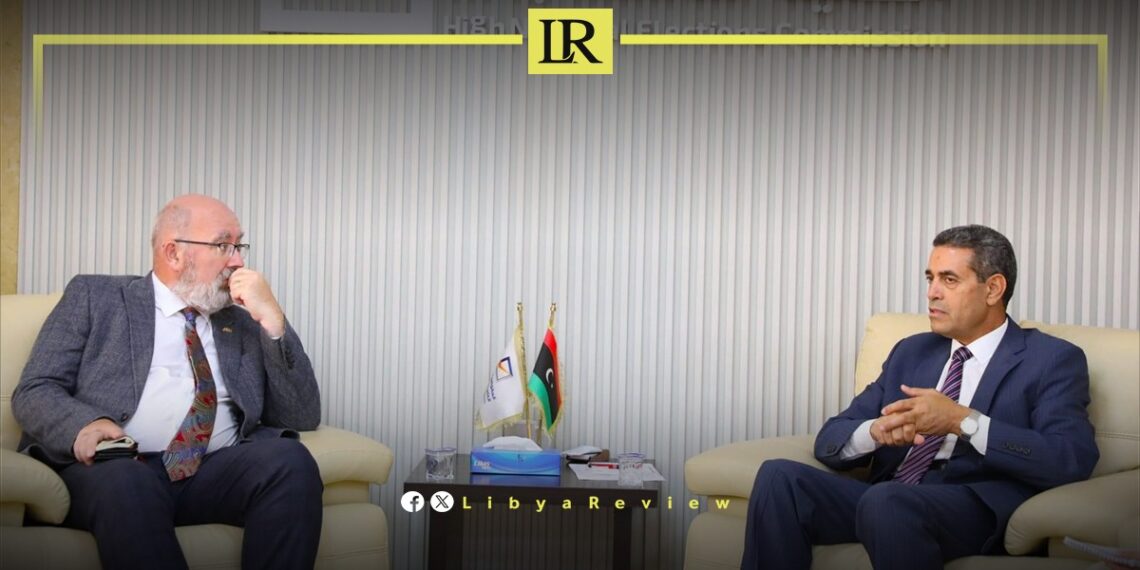On Thursday, Emad Al-Sayeh, Chairman of Libya’s High National Elections Commission (HNEC), held talks with Martin Longden, the UK Ambassador to Libya, and his accompanying delegation at the Commission’s headquarters in Tripoli.
During their meeting, discussions centered on enhancing Libya’s electoral processes, specifically the Commission’s readiness for upcoming municipal council elections.
On his part, the UK ambassador commended the Electoral Commission for its diligent preparations and reiterated the UK government’s commitment to providing technical and advisory support. This support aims to bolster the Commission’s operational readiness and foster an environment conducive to successful electoral undertakings, as highlighted in Al-Sayeh’s statement.
Notably, the Elections Commission has previously announced an extension of the voter registration period for the upcoming municipal elections. Abdul Hakim Al-Shiab, a member of the HNEC, confirmed in a press statement that the registration period for voters in 60 municipal council elections will be extended by another week.
Initially, the deadline to close the voter register was set for June 23. However, the Commission’s decision to extend the period comes after noting that the number of registered voters in these municipalities had reached 55,237 as of Friday.
The municipal council elections are critical for re-establishing local governance and ensuring Libyan citizens have a voice in local affairs. These elections are part of a broader strategy to decentralize power and build democratic institutions from the ground up. International support, particularly from the UN, is vital in providing the technical assistance, resources, and oversight needed for free and fair elections.
Libya has faced significant hurdles in its journey toward stable governance since the 2011 revolution that toppled long-time leader Muammar Gaddafi. The revolution’s aftermath plunged the country into a protracted civil conflict, fragmenting Libya into competing political and military factions and severely impacting national institutions, including the electoral system.
The 2015 Libyan Political Agreement, signed in Skhirat, Morocco, aimed to unify Libya’s governance structures. However, implementation has been slow and fraught with ongoing conflict. The Berlin Process, initiated in 2020, brought together international stakeholders to support a ceasefire and a political roadmap, including facilitating elections. Despite these efforts, achieving unified and stable governance remains challenging.


